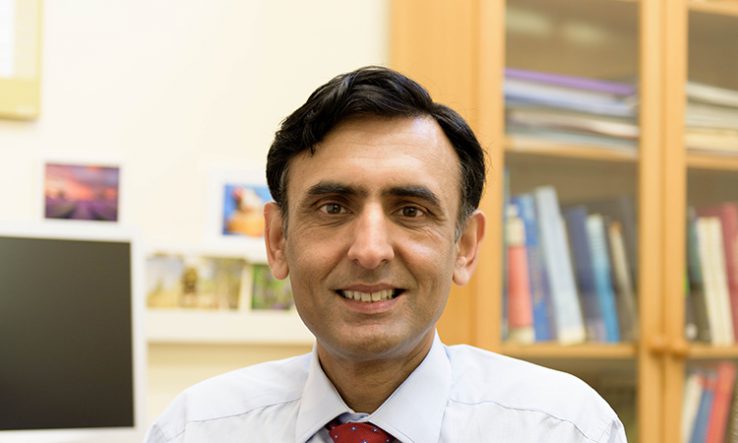
Nation will prioritise developing and attracting research talent, says chief scientific adviser Jas Pal Badyal
Although a small country, Wales has a huge potential to lead the world in developing sustainable technologies for the benefit of all. As Wales’ new—and fourth—chief scientific adviser, my job is to help achieve that, maximising the contribution science makes to the lives of its people, and providing expert leadership in the development of science and research policy.
I was inspired to come to Wales because I want to support its universities to benefit society and beyond, as I’ve sought to do with my own research. My group in the chemistry department at Durham University works to invent surfaces for commercial applications and to alleviate poverty in low-income countries, helping to deliver clean drinking water, water-harvesting and low-cost healthcare. Three startup companies have been set up to commercialise patented research from my laboratory.
As the head of the science profession in Wales, I also have a key role in championing high-quality science advice for Welsh ministers, as they develop and deliver policies.
Wales faces a range of environmental, economic, social and health challenges, many of which are also global. These issues demand an increasingly collaborative approach that shares risks and rewards, and links places, disciplines and sectors, including government, academia, the third sector, business and industry.
These challenges also give Wales opportunities to make a positive impact and consolidate its position as a trusted and valued partner. Recent work by Elsevier highlights the nation’s aptitude for collaboration, showing citation rates higher than the global average.
Maximising benefit
Like all nations, Wales must decide how to target its resources and effort for maximum benefit to its inhabitants—whether human, animal or plant—and the wider global community.
The Welsh Government’s recently launched Innovation Strategy seeks to address all these aspects. Science is also crucial to realising the aspirations of the nation’s groundbreaking Well-being of Future Generations Act.
Maximising benefit means making difficult choices between competing options and demands. Good decisions require a sound understanding and evidence of the research, development and innovation landscape within Wales and the wider context of the global system.
Key to success will be ensuring opportunities emerging from fundamental scientific research are translated into real-world solutions. This requires a focus on driving the development of discoveries up the technology-readiness levels so that the benefits such discoveries can bring are realised for all.
In short, this means developing world-leading, innovative ideas, taking those ideas out of the laboratory and ensuring they’re available for people to use in their day-to-day lives.
First steps
In 2021, Wales’ first minister set five government priorities for research, development and innovation. These are winning funding, supporting action to reach net zero, building capacity in health and life sciences, developing an innovation strategy, and the next phase of the Sêr Cymru scheme to support top talent in priority areas such as environmental and life sciences.
To help deliver these, I have set four early priorities of my own:
-
Developing the scientists of tomorrow by fostering opportunities for all children to engage in science, technology and engineering activities
-
Strengthening foundations for excellence in Welsh research
-
Attracting and retaining world-leading scientists
-
Encouraging opportunities for collaboration in applied science, to give Welsh scientists the skills to turn laboratory innovations into benefits for society and the economy.
Achieving these will help science play its part in meeting the challenges facing society to the benefit of all. The first step will be to raise the global profile of world-leading research and innovation being undertaken by Welsh universities and businesses.
Jas Pal Badyal is the chief scientific adviser for Wales